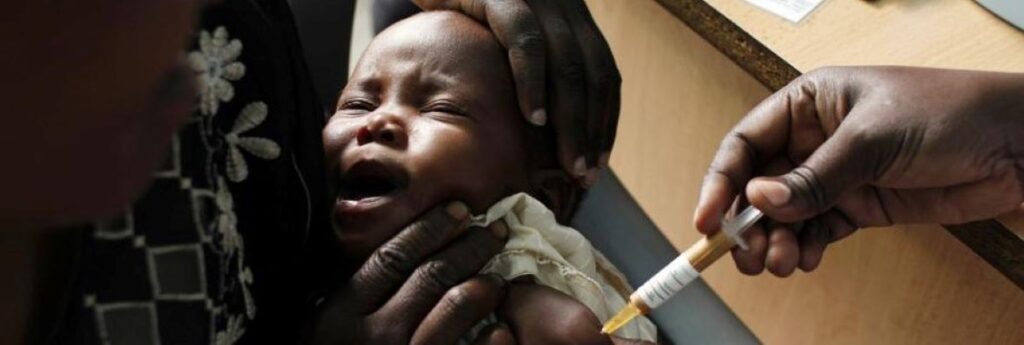And in other vaccine news… The World Health Organization says its endorsement of the world’s first vaccine for malaria marks an “historic moment” in the battle against the spread of the parasitic disease that afflicts as many people each year as the COVID-19 pandemic has since it started.
WHO, the United Nations health agency, reports that 229 million people were estimated to have contracted malaria globally in 2019 resulting in 409,000 deaths. (By contrast, nearly 250 million COVID-19 cases have been counted resulting in over 4.8 million deaths).
With its endorsement of the world’s first vaccine for malaria, the WTO said the vaccine should immediately be given to children across Africa, which carries a disproportionately high share of the global malaria burden. In 2019, the region was home to 94% of all malaria cases and deaths.
The vaccine, known as Mosquirix, was developed by GlaxoSmithKline in 1987. While it’s the first to be authorized, it does face challenges: The vaccine is only about 30% effective, it requires up to four doses, and its protection fades after several months.
Still, scientists say the vaccine could have a major impact against malaria in Africa, which registers 400,000 deaths per year.
WHO said its approval was based largely on results from ongoing research in Ghana, Kenya, and Malawi that tracked more than 800,000 children who have received the vaccine since 2019.
“(This) recommendation offers a glimmer of hope for the continent, which shoulders the heaviest burden of the disease,” said Dr. Matshidiso Moeti, WHO’s Africa director. “And we expect many more African children to be protected from malaria and grow into healthy adults.”
“This is a huge step forward,” said Julian Rayner, director of the Cambridge Institute for Medical Research, who was not part of the WHO decision. “It’s an imperfect vaccine, but it will still stop hundreds of thousands of children from dying.”
Rayner said the vaccine’s impact on the spread of the mosquito-borne disease was still unclear, but pointed to those developed for the coronavirus as an encouraging example.
“The last two years have given us a very nuanced understanding of how important vaccines are in saving lives and reducing hospitalizations, even if they don’t directly reduce transmission,” he said.

